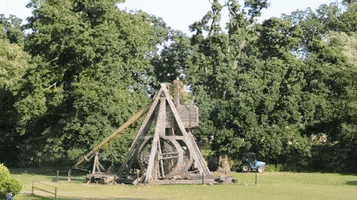C-Mag wrote:Montegriffo wrote:Safari tourism brings in vastly more money. They are worth more alive than dead.
More of the tourism money goes to the local communities who then have a vested interest in protecting the wildlife. Giving money to African governments so that Gucci Grace Mugabe can go to Harrods on a shopping spree helps no one.
Numbers or it's just a warm feeling.
http://www.endangeredspecieshandbook.or ... ourism.php
The irony of the slaughter of elephants and other large mammals for trophies is that the funds accrued from trophy hunting or ivory are miniscule in comparison to the value of these animals as ecotourist drawing cards. In Kenya, a 1989 analysis on the viewing value of elephants found that between $25 and $30 million per year was earned in tourist dollars from people attracted to the elephants alone (Brody 1994). A new project provides a local Maasai tribe with about $23,000 a year from tour operators who camp there primarily to show visitors the big bull elephants that are now so rare in East Africa (Brody 1994). During the long life of an African Elephant, it may produce tourist revenue worth $1 million, distributed to a wide range of recipients, from airlines to travel companies, and to local economies (Currey and Moore 1994). By contrast, a trophy-hunted elephant brings a one-time fee of $4,000 to $20,000. Estimates for African Lions are similar. A fully maned male Lion, according to Lee Durrell (1986) in State of the Ark, is worth $500,000 as a tourist attraction, whereas a Lion shot for sport or trophy is worth between $3,500 and $8,500, and its skin about $1,000.
https://www.ifaw.org/sites/default/file ... estion.pdf
Trophy hunting advocates present the industry as large, citing figures such as $200m in annual
revenue. But in the context of national economies, the industry is tiny, contributing
at best
a
fraction of a percent of GDP.
Nature based tourism does play a
significant role in national
development,
but trophy hunting is insignificant. Across the investigated countries, trophy
hunting revenue was only
1.8%
of tourism revenues
http://www.africanindaba.com/2017/02/th ... lume-15-1/
The report concludes that hunting brings in just 0.78 percent or less of the overall tourism spending and has only a marginal impact on employment in Botswana, Ethiopia, Mozambique, Namibia, South Africa, Tanzania, Zambia and Zimbabwe, providing approximately 0.76 percent or less of overall tourism jobs. The total economic contribution of is at most an estimated 0.03 percent of gross domestic product (GDP), the HSI report said.
https://news.nationalgeographic.com/201 ... e-namibia/
According to an IUCN report, the sport hunting industry does not provide significant benefits to the communities where it occurs. Across Africa, there are only about 15,000 hunting-related jobs—a tiny number, especially considering that the six main game-hunting countries alone have a population of nearly 150 million.
Besides that, local communities make an average of only ten cents a hectare (25 cents an acre) from trophy hunting. A return that small, the report says, explains locals’ “lack of interest in preserving hunting areas and their continued encroachment and poaching.”
With more than one-sixth of the land in those six countries set aside for trophy hunting, and the fact that land-hungry politicians are seizing more and more land for themselves, impoverished rural communities often resort to poaching and the illegal wildlife trade to sustain themselves.
https://www.huffingtonpost.com/michael- ... 55186.html
Are these animals worth more to local economies alive or dead? One African conservationist estimated that eco-tourists from just one lodge paid more in a week to take pictures of Cecil than the $55,000 that Palmer spent to put the lion’s head on his trophy wall. Over his lifetime, a living Cecil could have brought in $1 million in tourism.
https://africageographic.com/blog/troph ... e-reality/
Over the last few months, wildlife biologists and conservationists have found themselves taking sides – for or against the trophy hunting industry. Many conservationists, such as myself, are against the trophy hunting of endangered and vulnerable species, not because of animal welfare reasons but because of the failure of this activity to fulfil its role in conservation. In the majority of the arguments put forth by conservationists in its favour, the term “trophy hunting” has often been found alongside the words “potential tool” and “if well done”. However, the reality shows that in practice in some countries, it is just an activity to fuel corruption, encourage the unfair redistribution of the wealth generated, inadequate involvement of communities and the loss of healthy individuals that are still key for reproduction.
We are often brainwashed about the role of trophy hunting as a conservation tool. It is presented to us as a magic bullet for conservation efforts in African countries where hunting is allowed.
It is true that in some areas, conservationists work alongside hunters and some hunting clubs donate large amounts of money to NGOs. However, these initiatives that started off with good intentions are often, over time, diluted by corruption and loss of interest. “Campfire” in Zimbabwe is a prime example – what started off with good intentions and was successful in its goals for a few years, collapsed in its purpose and today is heavily subsidised by the government.




